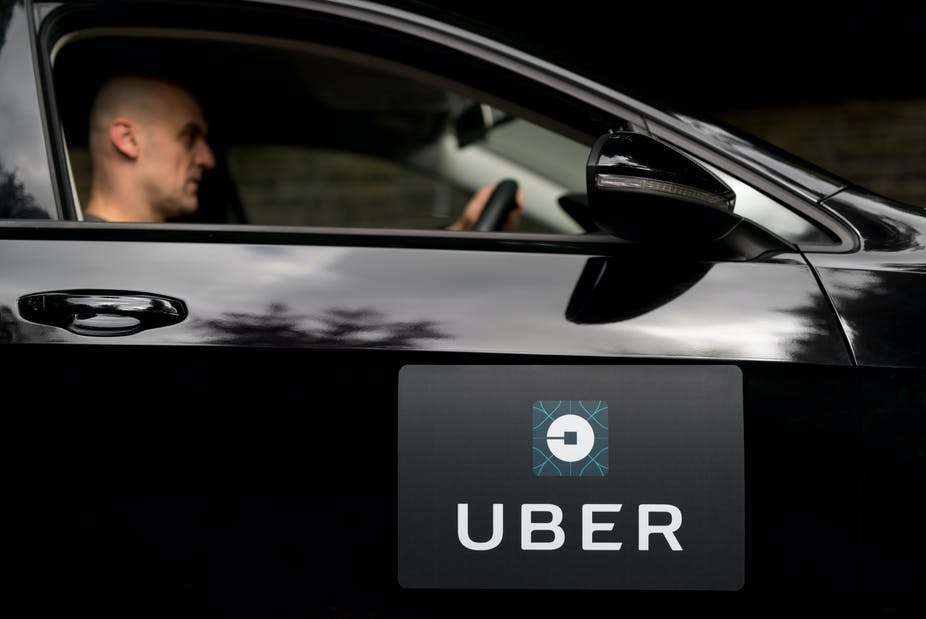For a handful that patronizes the taxi industry, Uber is labeled to be a successful turn of events. Although some people still have their criticism and spotted holes when it comes to Uber services. Is Uber the next generation of taxi business? Or is it just the usual taxi business in a make-believe package?
This article will be discussing how Uber has changed the taxi industry. We will also be discussing Uber’s differences from the traditional industry system and its pros and cons.
A statistic drawn from the United Kingdom taxi industry survey shows that registered taxis have risen from 184,500 in 2005 to over 300,000 in 2020. However, this number cut across all vehicles registered with all companies affiliated with the taxi industry in the UK.
Looking at the financial aspect, Uber has made an impressive statement in the taxi business over the past decade. According to Forbes, the company is worth over 43 billion dollars at the end of 2021. It has employed a reasonable number of people, therefore recording a growth of around 2.07% between January and December 2021.
Unarguable, Uber has created a good investment platform for investors in the taxi industry worldwide and allows its investors to have a reasonable level of control over their income and investment growth.
As a company that has invested in the taxi industry, it is difficult to say how much Uber has changed or affected the taxi industry. However, it is visible that since the introduction of Uber to the taxi industry, there has been customer-favored competition within the sector that has forced a form of regulation within the taxi industry. The taxi industry competitors have been forced to stand on their heels by innovating and tirelessly striving to remain relevant, thereby creating a favorable option for users.
The hustle to maintain or gain customers has seen that every party in the taxi industry review their fares, safety, technology that they use, and even strictly monitor both their drivers and vehicle conditions.
What are the differences between Uber and the traditional industry system?
You can’t just cut off the services rendered by the traditional taxi industry system. People have vast choices and still maintain arguable points on their preferred option on which taxi service to use. Some of the differences include:
Personal rapport
Some users opt for the traditional industry system because they have patronized these services for a very long time and have developed some personal rapport or relationship with the drivers. Even though Uber can track trips, some people still argue that they feel safer and more confident because they know the vehicle and its driver’s condition, unlike the Uber services where they only rely on stars and ratings to determine or judge the driver or vehicle condition.
Route navigation
It is not always about the money spent on each trip, but the time the users of these services spend also matters a lot. The introduction of maps and other guides to the Uber services has improved the system dramatically, unlike the traditional system where riders depend on the driver’s knowledge of the area as navigation.
With the Uber tech, the drivers are at liberty of accessing their best route option. This will also help the driver avoid unnecessary hold-ups and skip disaster-affected areas if there is any trip interference along any route.
Comfort and ease

With the help of the Uber app, you can easily sit at the comfort of your phone and order a ride to your doorstep. With the traditional industry system, you need to walk down the street and possibly join the tedious search for a ride to your destination. Many users have opted for Uber services because of their comfort and easy access.
While waiting for the arrival of the ride you ordered, you can quickly contact your driver and even verify the vehicle registration and driver’s rating. You have the option to select a comfortable payment option from the variety of available options on the Uber app, unlike the traditional taxi industry system.
Drivers benefits
Uber drivers are entitled to some benefits such as job flexibility and the opportunity to work at their preferred hours. Uber has also received massive criticism for its “no-job security operation.” They do not offer drivers job protections compared to the traditional taxi industry. A driver is penalized based on their ratings and performance, unlike the conventional taxi system where they have the entitlement and power to keep their jobs after a bad report or review.
The Uber services have received a significant amount of criticism for not offering their drivers bonuses for sickness or holidays. A driver gets paid for the amount of time he spends working, unlike the traditional taxi system where drivers get bonuses based on their bosses or employer’s policies.
How has Uber impacted the economy?

Uber services’ impact on the economy has not been mathematically projected accurately. There is no official data on how much Uber is a company, but rather all projections go to how the taxi industry has performed over a given period. However, one unique way Uber services have impacted the economy is known as the ‘gig economy.’
The gig economy refers to the period at which people or individuals capitalize on the opportunities presented by circumstances to take on passion projects or available freelance options than ever before, however, unlike the large number of individuals who work as freelancers, including Uber workers who are often striving to make money through huge companies, which takes a cut of their earnings.
In a nutshell, Uber is one of the fastest-growing investment platforms, but Uber has its pros and cons like every business in the competitive world. The introduction of Uber services to the taxi industry has forced many competitors to fix their policies to compete for a spot in the industry. This has positively impacted the taxi industry because the data of riders and drivers can be obtained, thereby giving the taxi industry a new phase.





